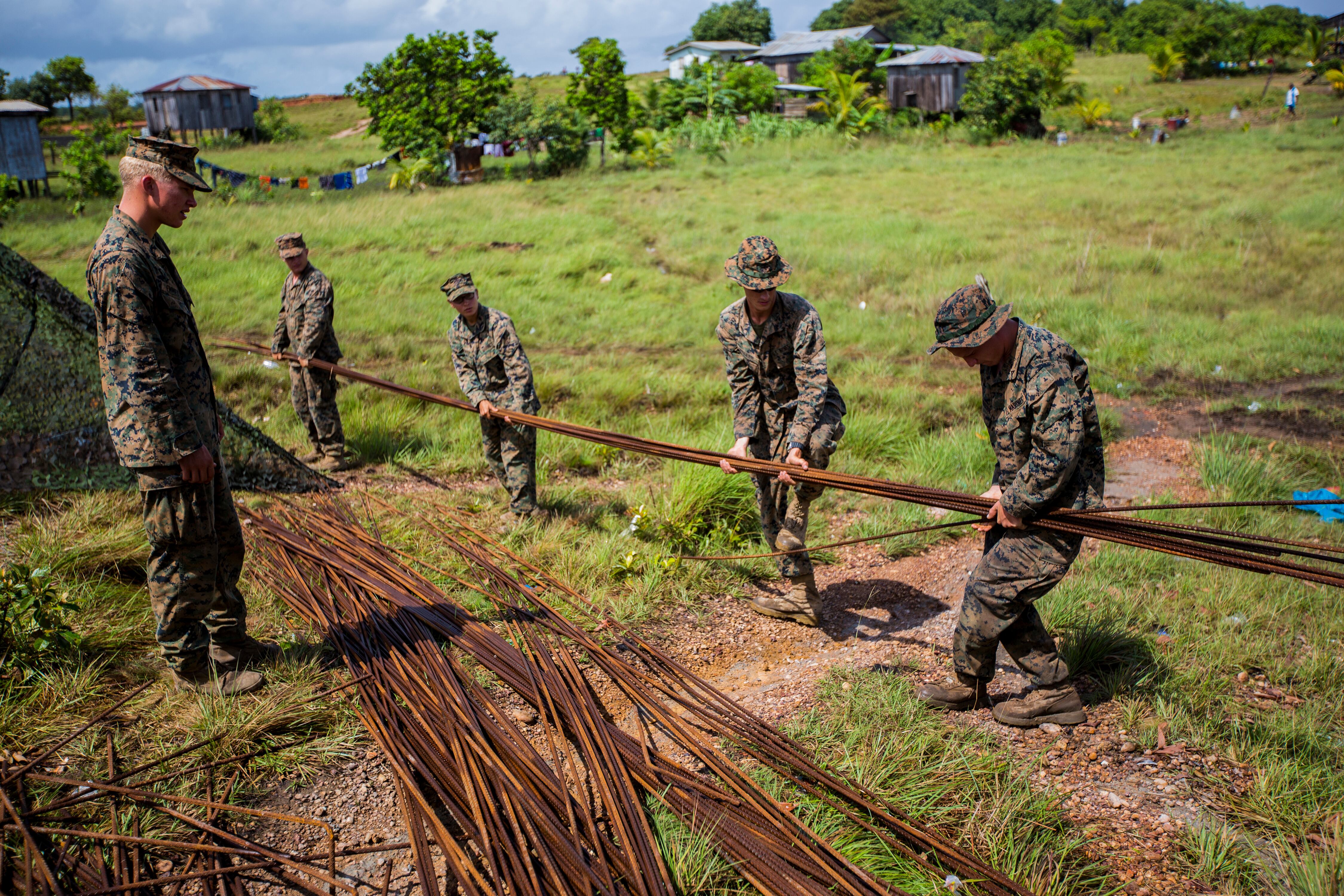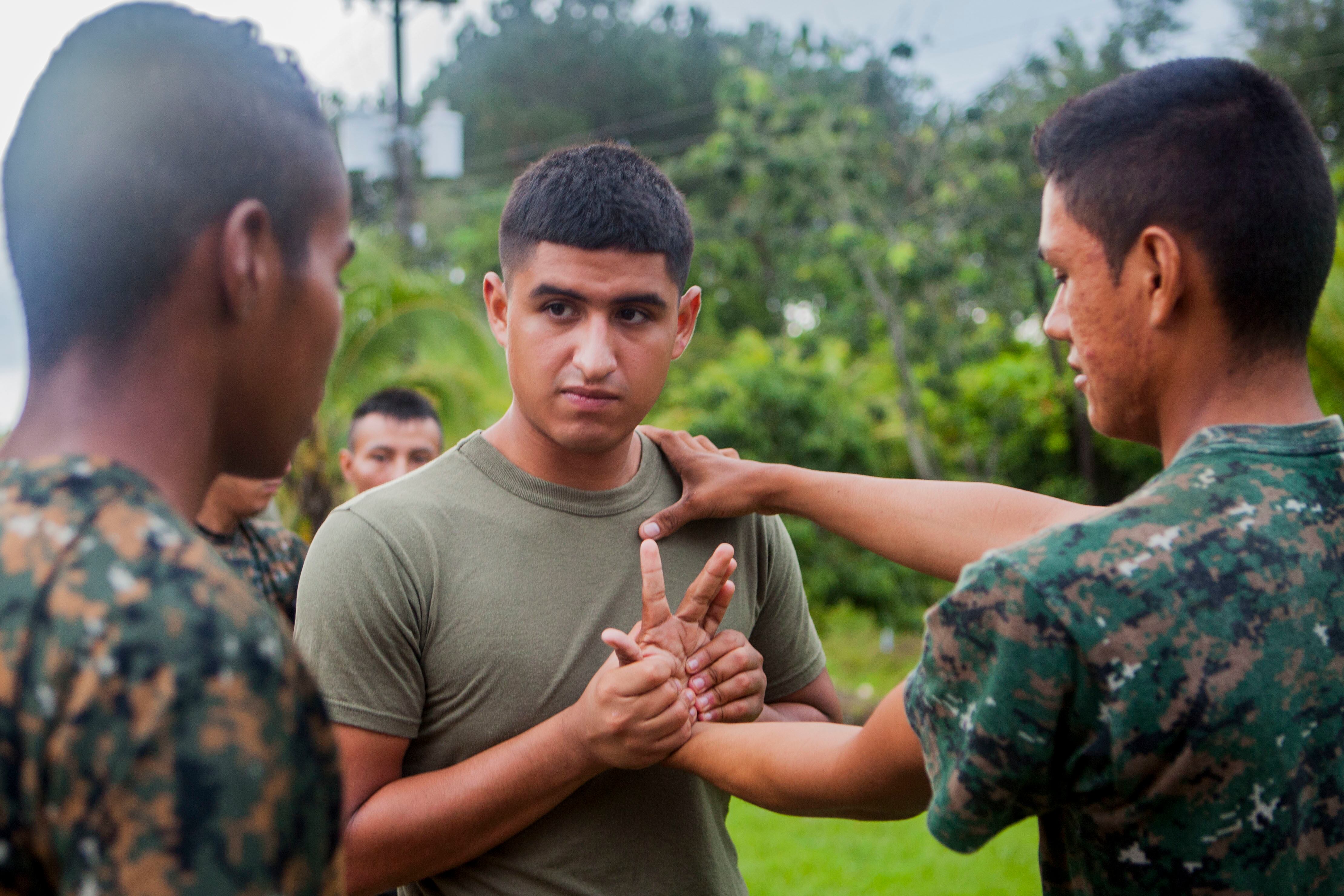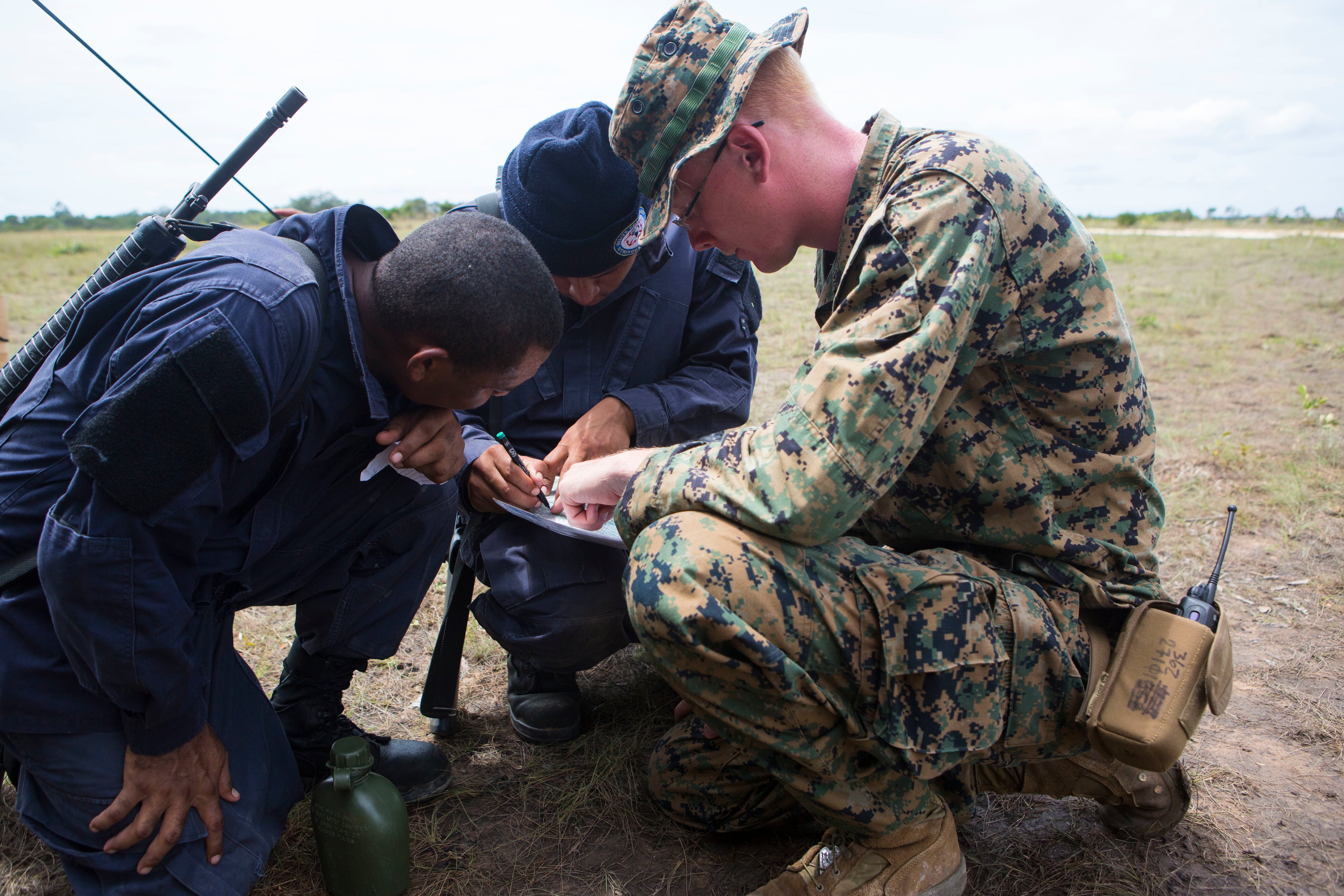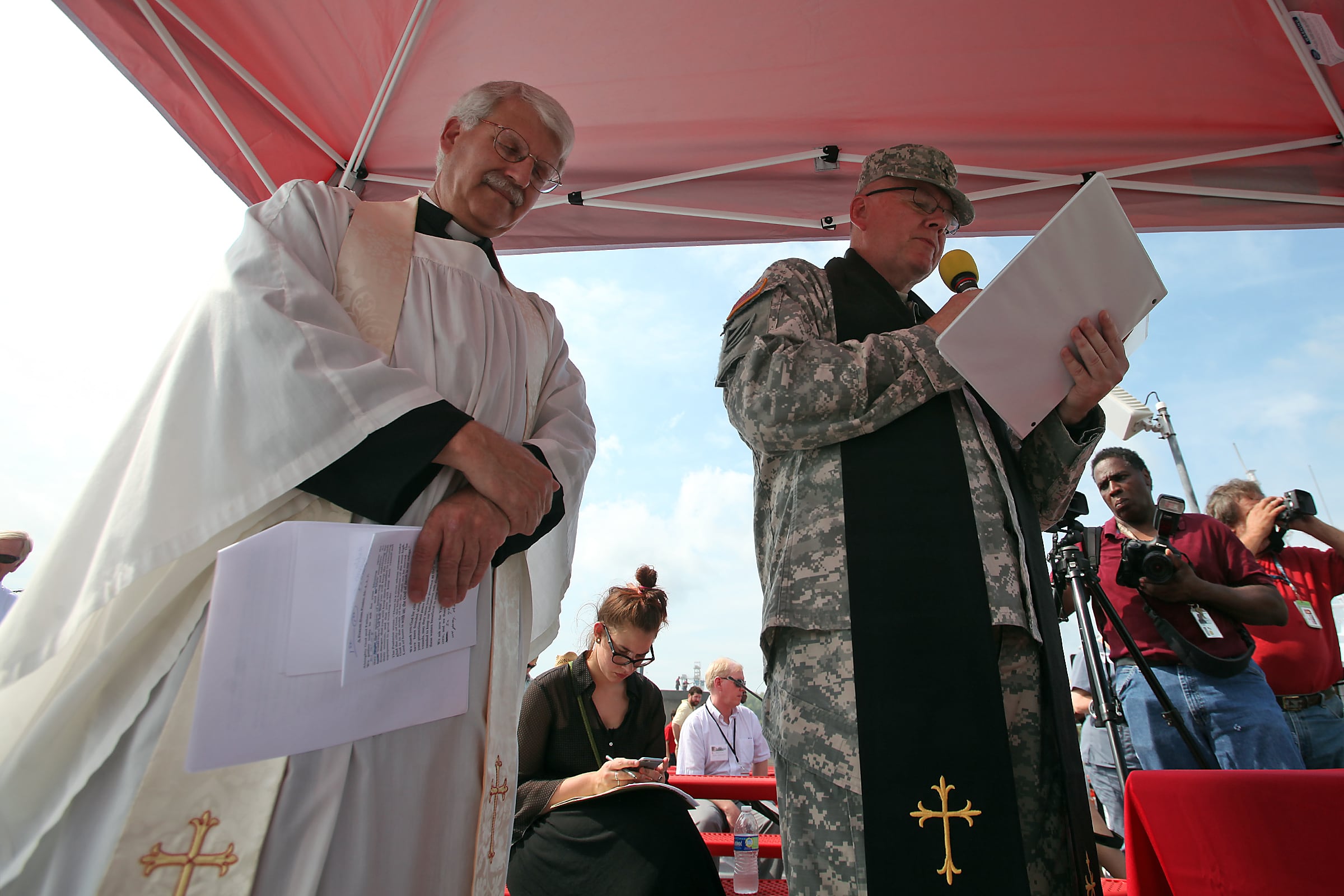Central American troops gearing up to fight against the brutal gangs and drug cartels plaguing their region will soon train at schoolhouses that small teams of Marines helped develop.
About 280 Marines began returning to Camp Lejeune, North Carolina, in mid-November following a six-months deployment to four Central American countries. It marks the end of the inaugural deployment for Special Purpose Marine Air-Ground Task Force — South, which was headquartered at Soto Cano Air Base in Honduras.
The Marines spent the deployment working alongside military partners in Honduras, Guatemala, El Salvador and Belize.
They built new schools, runways and other infrastructure in the troubled region while remaining at the ready to assist with any humanitarian crises that emerged during hurricane season. They also dispatched four small Marine Security Cooperation Teams to military bases in the region to assist local troops in honing their infantry and leadership skills through the development of new training programs.

Members of Special Purpose Marine Air-Ground Task Force — South move rebar in Puerto Lempira, Honduras, where they were building a new school. It was the inaugural deployment for SPMAGTF-South, which spent six months in four Central American countries during hurricane season.
Photo Credit: Cpl. Katelyn Hunter/Marine Corps
In Honduras, four Marines and a Navy corpsman helped the naval infantry at Puerto Castilla form professional military training centers, similar to the Corps' enlisted infantry schools and The Basic School for officers.
"We were definitely pioneers," said Capt. Juan Diaz, a military police officer who served as the Honduran SCT's officer in charge. "We helped establish and start up an institution of sorts in this country."
The Marine SCT in Belize accomplished something similar. After every training session with Marines, members of the Belizean Defense Force and Coast Guard were always asking for more, said Staff Sgt. William Haddix, the team's staff NCO in charge.
"[That] actually led to our team developing the Infantry Leaders Course, which is designed to build the officer and senior NCO corps," he said.
The Central American troops training with the Marines have been tasked with demanding missions in recent years to fight U.S.-bound drug traffickers in and around their countries' jungles, rivers and coasts. The region has been beset by violence tied to that trade, which has led to the mass exodus of tens of thousands of unaccompanied child migrants whose families are seeking better lives for them in the U.S. Murder rates in places like El Salvador and Honduras are some of the highest in the world as teens face death threats toif they don't join up with gangs, and cartels threaten local officials who refuse to support their crimes.
Military partners there continue to look to Marines to help them develop skills needed to win those fights. Lt. Col. David Hudak, SPMAGTF-South's commanding officer, called the unit's inaugural deployment was a huge success.
"They wanted everything we could provide for them training-wise," he said.

Cpl. Jose Madera, center, teaches Guatemalan marines about wrist lock techniques during an Urban Combat Course in Puerto Barrios. Madera was a member of the first-ever Marine quick-reaction force for the region, which recently completed its first six-month deployment.
Photo Credit: Lance Cpl. Abraham Lopez/Marine Corps
In Belize, military leaders have been working with Marines to develop more robust physical training regimens. Belizean troops are sent deep into mountainous jungle terrain where cartels and international criminals move illicit goods. Helping them prepare physically for operating in that type of terrain was a huge part of the Marines' mission in that country, Haddix said, as they ran the soldiers and coasties there through obstacle courses and Marine fitness tests.
Over time, Haddix said they saw the Belizean troops' skills, fitness test scores and obstacle course times improve.
"Our Marines did not disappoint," he said.
Haddix said that the experience watching his Marines gained as they to stepped out of their comfort zones to while training and mentoring international troops is something that will help them throughout their careers.
"Watching my Marines grow, and the pride they took in their work, made this a true once in a lifetime opportunity," he said. "I truly hope that these types of deployments become commonplace in the Marine Corps because it really gives Marines a chance to get out of their comfort zones and get that travel and adventure [they've wanted] ... since day one."

Lance Cpl. John Pingel works with Belizean coast guardsmen during a land navigation exercise in Ladyville, Belize. A Marine Security Cooperation Team that recently spent six months in Belize helped the military there develop a new Infantry Leaders Course.
Photo Credit: Cpl. Shakeasha Payton/Marine Corps
Hudak said for many of the Marines in Central America, it was their first deploymentfist time deploying. Now they'll head back to the fleet with not only with refined skills tied to their military occupational specialties, but also with newly found confidence, he said.
"They might be a 21-year-old lance corporal, but they're a big deal when they come to another country and stand in front of another nation's military," he said. "They build up that confidence when doing something outside their normal MOS."
Diaz, who led the team in Honduras, said his Marines didn't immediately realize the impact they were having hadon that country's military as they helped in helping develop the infantry and officer courses for new troops there.
"At first, they were just doing their jobs," he said. "...I actually sat down and explained to them the level of impact, that we actually did something really big in developing these new courses. It definitely got the Marines out of their comfort zones, and they'll now be better mentors to their own Marines."
The next iteration of SPMAGTF-South will deploy again next spring during 2016's hurricane season. The Marines were equipped with four CH-53E Super Stallion heavy-lift helicopters that could be used to help evacuate in the event of a tropical storm. Hudak said the helos were also used to transport Marines and materials between the four countries.





